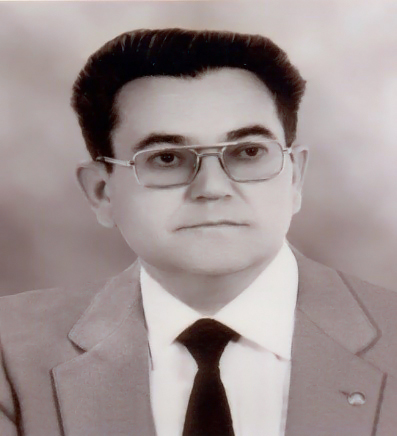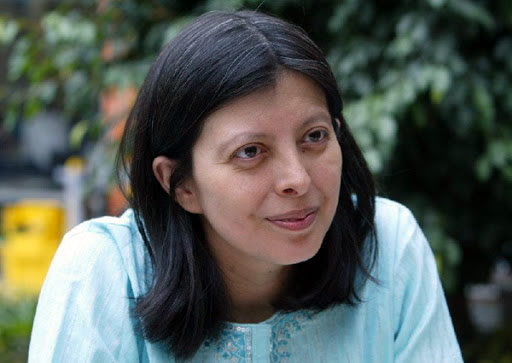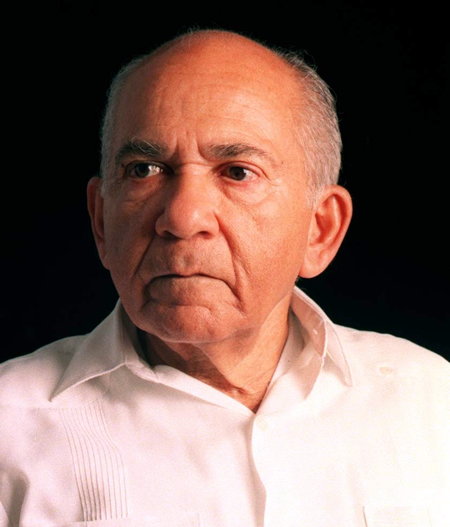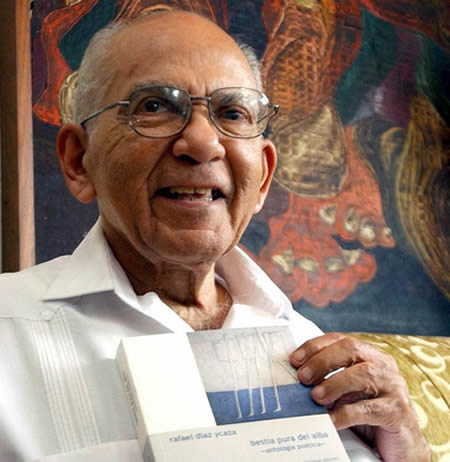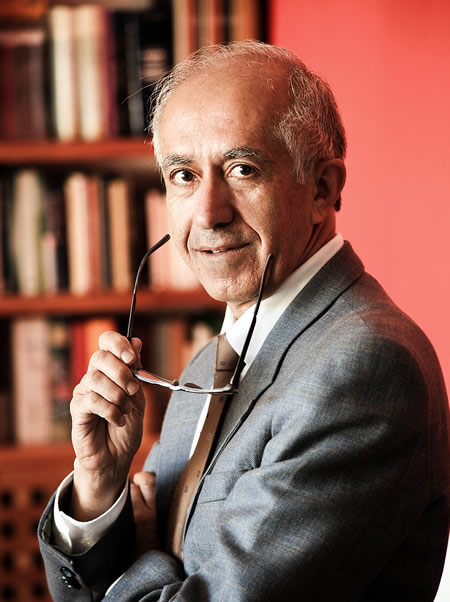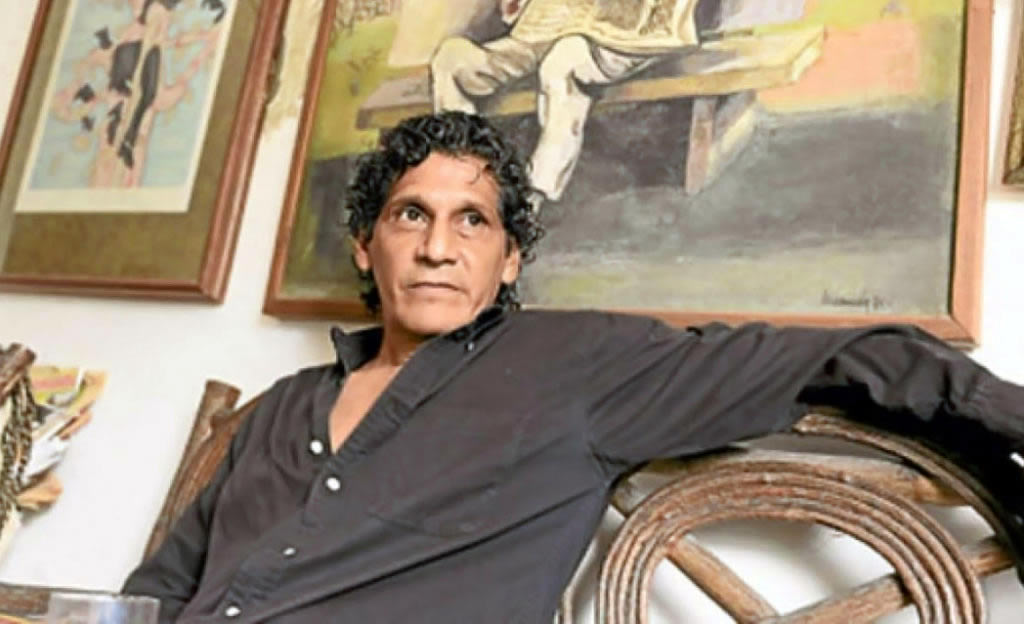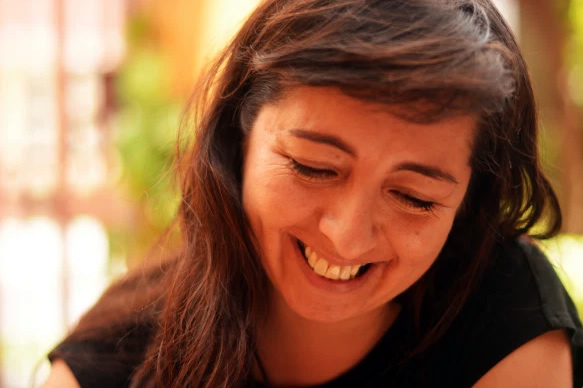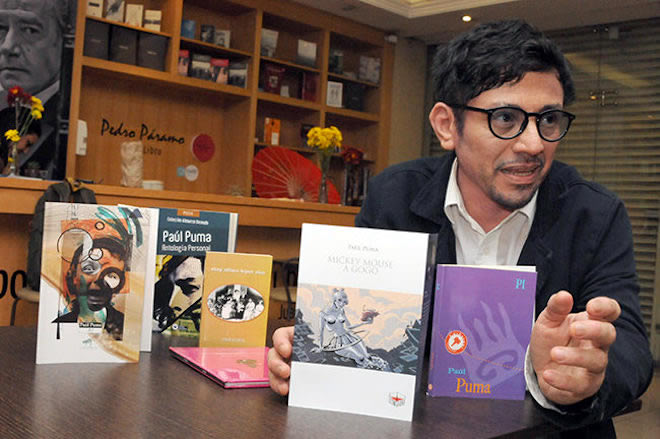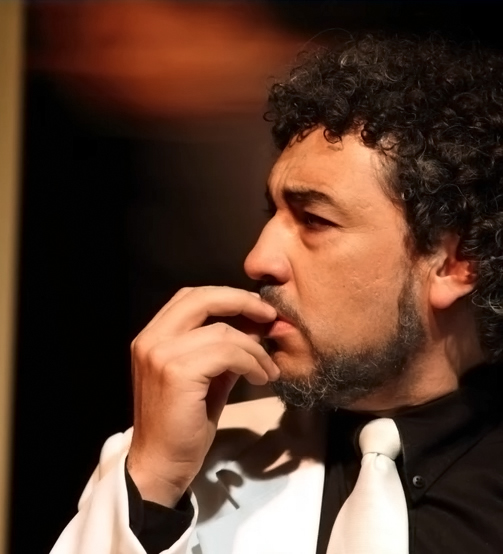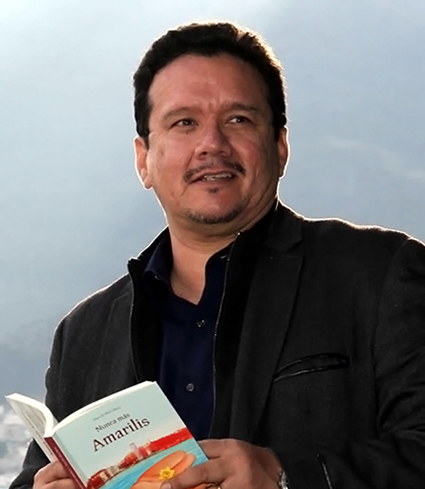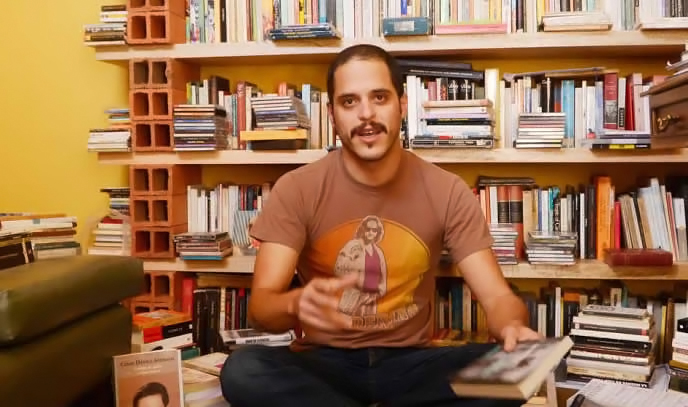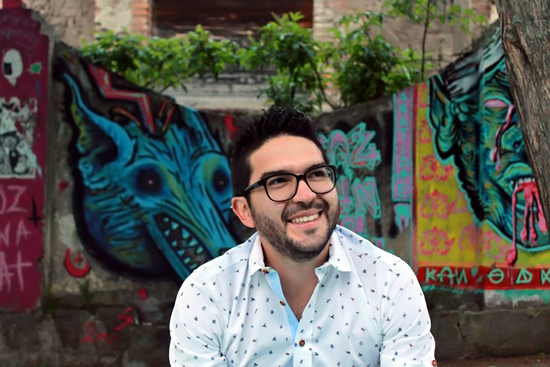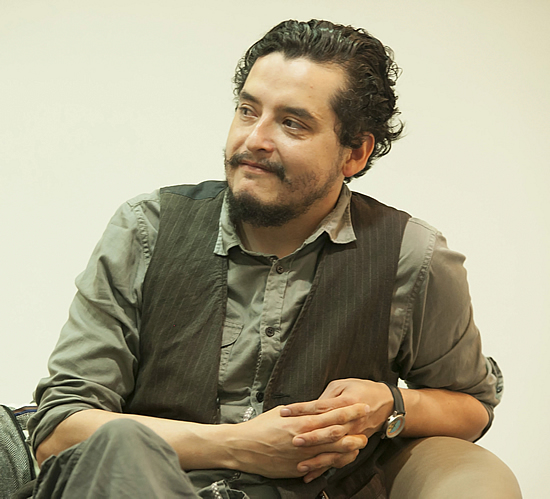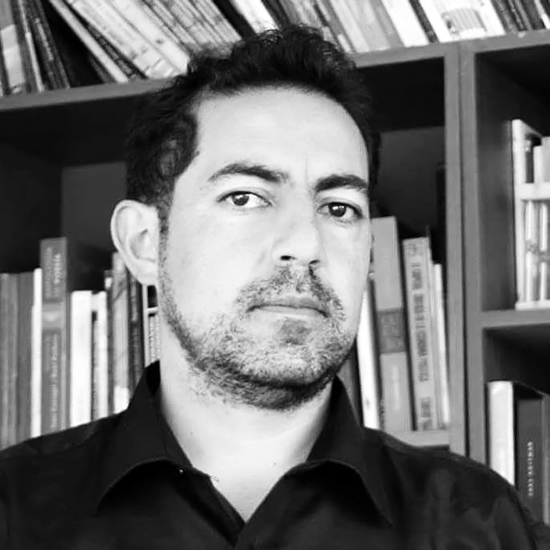Gabriela Fernández Argüello is an Ecuadorian writer. She was born in Quito in 1971. Her collection of 11 short stories La noche de Eva was awarded the Aurelio Espinosa Pólit Prize in 2004.
Continue reading “Gabriela Fernández Argüello”Category: 21st Century Writers
Juan Manuel Rodríguez López
Juan Manuel Rodríguez López is a novelist, short story writer, literary critic, columnist and professor. Born in Bilbao, Spain in 1945, Rodríguez is a naturalized Ecuadorian citizen and has lived in Quito most of his adult life. Rodríguez’ award-winning fiction includes the novels El poder de los vencidos (2003), El pulso de la nada (1996), and El Espantapájaros (1990 & 1995). In 1990, his short story collection Fricciones won the prestigious Aurelio Espinosa Pólit Prize.
Continue reading “Juan Manuel Rodríguez López”María Helena Barrera-Agarwal
María Helena Barrera-Agarwal (Pelileo, 1971) is an Ecuadorian writer, lawyer and researcher. She’s the author of eight books on literature and history. She is an expert on the 19th century Ecuadorian poetess Dolores Veintimilla de Galindo. Barrera is a member of the House of Ecuadorian Culture (Tungurahua chapter), the National Academy of History of Ecuador, the PEN American Center, the National Book Critics Circle of the United States, the India International Centre (India), and the Association of Hispanic Feminist Literature and Culture. She is a recurring contributor to the magazine Artes of the newspaper La Hora. Her book “Merton y Ecuador: La búsqueda del país secreto” was awarded the Aurelio Espinosa Pólit Prize in 2010. Barrera currently lives in New York, U.S.
Continue reading “María Helena Barrera-Agarwal”Ecuadorian poet and novelist Rafael Díaz Ycaza reading from his poetry and prose
Ecuadorian poet and novelist Rafael Díaz Ycaza reading from his poetry and prose. Archive of Hispanic Literature on Tape (Library of Congress, Control Number 93842308), Recorded Mar. 27, 1977, in the Library of Congress Recording Laboratory, Studio B, Washington, D.C. Recorded for the Archive of Hispanic Literature on Tape. Production level cataloging. Also available in digital form on the Library of Congress Web site.
Go to RecordingRafael Díaz Ycaza
Rafael Díaz Ycaza (Guayaquil, October 28, 1925 – August 28, 2013) was a poet, novelist, short story writer and columnist. His notable works include poetry collections such as “Statues at Sea” (1946), “Botella al Mar” (1964), and “Zona Prohibida” (1972), each resonating with his lyrical style and profound imagery. Among his novels are “Los Rostros del Miedo” (1962) and “Los Prisioneros de la Noche” (1967). Beyond his literary achievements, Díaz Ycaza was honored with various awards and recognitions, including the Aurelio Espinosa Pólit Prize (1985)” and the “José de la Cuadra National Short Story Prize (1967). In 2011, Ecuador’s President Rafael Correa awarded Díaz with the the nation’s highest literary distinction, the Eugenio Espejo National Prize, for his lifetime of literary work.
Continue reading “Rafael Díaz Ycaza”“His book [Zona prohibida] was like a bible for the youth of my generation, especially for its social poetry.”
Sonia Manzano (Poet) – quoted in “Rafael Díaz Ycaza, el hombre que dedica su vida a las letras,” El UNIVERSO, Sept 2, 2011.
Iván Carvajal
Iván Carvajal Aguirre is a poet, writer and professor. He was born in 1948 in San Gabriel, Ecuador. In 1984 his work entitled Parajes earned the Aurelio Espinosa Pólit Prize. In 2013 he won the Premio a las Libertades Juan Montalvo. He was part of the Tzantzismo literary movement of the 1960s Ecuador. He lives in Quito and is a Professor at the Pontifical Catholic University of Ecuador.
Continue reading “Iván Carvajal”Jorge Martillo
Jorge Martillo Monserrate is an award-winning poet and has been a columnist for various newspapers. He was born on May 2, 1957 in Guayaquil, Ecuador. He has published the poetry books: Aviso a los navegantes (1987); Fragmentarium (1991); Confesiorarium (1996) and Vida póstuma (1997). He was awarded the Aurelio Espinosa Pólit Prize (1991).
Continue reading “Jorge Martillo”Cristina Burneo
María Cristina Burneo Salazar is an Ecuadorian writer, translator, journalist, professor and feminist. She was born in Quito in 1977. She earned a degree in literature from the Pontifical Catholic University of Ecuador, a master’s degree in literature from the Simon Bolivar Andean University, and a PhD in Latin American literature from the University of Maryland, College Park. Since 2014 she has worked as a postgraduate professor at the Simon Bolivar Andean University, specializing in Human Rights, Cultural Studies and Literature. Her book El sueño de Pierre Menard (2001) which questions the essential characteristics of translation and the criteria used to judge a translation, earned the Aurelio Espinosa Pólit Prize.
Continue reading “Cristina Burneo”Paúl Puma
Paúl Puma (Quito, 1972) is an Ecuadorian poet, playwright, and literary critic. He has a master’s in Latin American literature from the Simón Bolívar Andean University, Ecuador, and a PhD from the University of Alicante, Spain. Among his best known works are the poetry book Felipe Guamán Poma de Ayala (winner of the Aurelio Espinosa Pólit Prize, 2002), and the science fiction theatre piece Mickey Mouse a Gogo (winner of the Joaquín Gallegos Lara Prize, 2017). In 2017 Puma published El tesoro de los llanganatis (The Treasure of the Llanganates) with an English translation by Jonathan Simkins.
Continue reading “Paúl Puma”Roberto Sánchez Cazar
Roberto Sánchez Cazar (Quito, 1971) is a Ecuadorian artist celebrated for his extensive contributions to theater, both nationally and internationally. His work spans a variety of roles, from actor and director to educator. Notably, as a playwright, he has enriched the literary landscape with his unique voice and narrative style. His dramatic works have garnered him numerous accolades, including the Aurelio Espinosa Pólit National Literature Prize in 2003. His plays, which have been staged in Ecuador, Colombia, and beyond, delve into universal human themes with an intimate understanding of the complexities of the human condition. Published in various magazines and books across Ecuador, Spain, and the United States, his plays have also found their place in Ibero-American anthologies, showcasing the global resonance of his work. Sánchez Cazar’s enduring dedication to the literary arts continues to inspire, influence, and invigorate the world of contemporary theater.
Continue reading “Roberto Sánchez Cazar”Marcelo Báez
Marcelo Rafael Báez Meza (Guayaquil, April 24, 1969) is an Ecuadorian poet, novelist, translator, and film critic. He has earned a myriad of awards for his books. He won first place in the National Literature Contest of the House of Ecuadorian Culture on three occasions (1997, 2005 and 2013). His prize-winning novels include “Catador de arenas” (2010) and “Nunca más Amarilis” (2018). In 2012 his poetry book “El mismo mar de todas Las Habanas” won the Aurelio Espinosa Pólit Prize. He is currently the dean of the Art, Design and Audiovisual Communication Department of the Superior Polytechnic School of the Littoral (ESPOL) in Guayaquil.
Continue reading “Marcelo Báez”Luis Borja Corral
Luis Borja Corral (Quito, 1981) is an attorney and writer. Recurring themes in his works include sexuality, death, marginalization and love. “Los funámbulos” (2012), his first novel, was published digitally. His second novel “Pequeños palacios en el pecho” (2014), won the Aurelio Espinosa Pólit National Literary Prize.
Continue reading “Luis Borja Corral”Santiago Peña Bossano
Santiago Peña Bossano is an Ecuadorian writer. He was born in Quito in 1990. His nonfiction book Estética de la indolencia (2015) won the Aurelio Espinosa Pólit Prize. He received a masters in Literature from the Complutense University of Madrid. He is a professor of Hispanic Literature at the Pontifical Catholic University of Ecuador. He is the director of Cactus Pink, a publisher in Quito. He teaches creative writing at the Kafka Escuela de Escritores (Kafka School for Writers). His novel Mindotown was published in 2017.
Continue reading “Santiago Peña Bossano”Roberto Ramírez Paredes
Roberto Ramírez Paredes (Quito, 1982) is an Ecuadorian author and university professor. His literary journey began with his debut novel “La ruta de las imprentas” in 2015, followed by the critically acclaimed “No somos tu clase de gente” in 2018, which won the Aurelio Espinosa Pólit National Literature Prize. His later works, “Evangelio del detective formidable” (2021) and “Tamia, el universo” (2022), further established him as a prominent figure in contemporary literature. Apart from his novels, Paredes has written for notable Ecuadorian newspapers, including El Comercio and Hoy, and has had his short stories published in various anthologies. Currently, he is sharing his literary expertise and knowledge as a professor at the School of Literature at the University of the Arts (UArtes)in Ecuador.
Continue reading “Roberto Ramírez Paredes”Carlos Vallejo
Carlos Vallejo Moncayo (born in 1973) is a writer from Quito, Ecuador. His poetry book La orilla transparente (2007) earned the prestigious Aurelio Espinosa Pólit National Prize for Literature. In 2009 he was awarded the César Dávila Andrade National Literature Prize.
Continue reading “Carlos Vallejo”
